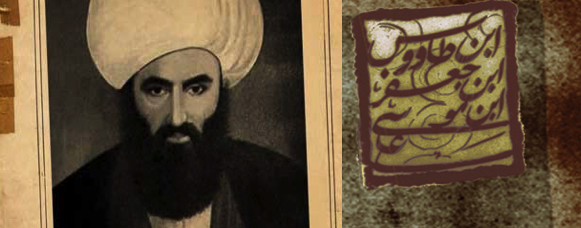
Raḍī al-Dīn 'Alī ibn. Mūsā ibn Ṭāwūs al-Hasanī al-Ḥillī Ibn Tāwūs (d. Baghdad, 664/1226) on the Mightiest Name of God.
Stephen Lambden UCMerced.
In progress 1990s-2018.
Raḍī al-Dīn Abū'l-Qāsim lbn Tāwūs (d.664 /1266)
A number of Muslim thinkers, mystics and transcendental philosophers have claimed a knowledge of the secreted Greatest Name of God. The learned Shi`ī scholar and Akhbārī traditionalist Raḍī al-Dīn Abū'l-Qāsim lbn Tāwūs (d.664 /1266) is reputed to have been "granted knowledge of the Greatest Name of God (ism Allāh al-a'zam)" which existed in his writings wherein it is "strewn ... like shining pearls" (Kohlberg, 1992:14-15). Knowledge of the Greatest Name was said to confer great spiritual power as well as protection from evil and misfortune. Forms of it are frequently found on talismanic devices. Alleged graphic representations of it are often featured upon Islamic amulets.
The Mightiest Name theological motif appears to have been adopted within the first few lslamic centuries as is suggested in various hadīth statements and, for example, the concepts adopted within early Shfī and related ghuluww ("extremist") factions.
Kohlberg, Etan
- A Medieval Muslim Scholar at Work: Ibn Tawus and His Library. Brill Academic Publishers, 1992.



